In 1859 Charles Darwin published his theory of descent with modification, propelled by natural selection. People often suppose that he had invented the idea of evolution, and that subsequent debate was between benighted bishops and Bible-bashers on the one hand, and enlightened scientists on the other; or maybe between decent upholders of traditional values and ruthless materialists. But evolution was an old idea, and Darwins role was to work out a scientifically respectable version of it, one which involved stretching the boundaries of what most people saw as scientific method. Nobody had ever seen one species change into another, and so Darwin could not generalise from a number of authentic cases as the inductive logic of Francis Bacon would have allowed. Thus his arguments were like legal pleas, manifestos, or sermons, aiming to convince beyond reasonable doubt a rope of weak fibres twisted together into something stronger, but not a rigorous deductive chain like Euclids geometry, which provided another model of scientific inference. So to many contemporaries expert in natural history, his theory seemed speculative, unnecessary and untestable, all too liable to divert serious students from the real business of classifying organisms and strata, or understanding anatomy and physiology. Incredulous critics saw mere higgledy-piggledy chance in the supposed operation of natural selection: Darwin, and his great ally Alfred Russel Wallace, tried to get them to see law and probability, and to take more seriously the great sweep of geological time. In this series, reproduced in facsimile from the rich collections of the library of the Natural History Museum in London, we shall encounter important but accessible scientific books making the case for and against evolution during Darwins lifetime.
A prologue to our story: in the opening years of the nineteenth century, three important authors published works that renewed debate about design and evolution. In 1802, William Paleys Natural Theology came out, making the case in classic prose that the world was a great clock (the best of all possible clocks), we and other organisms little clocks, and God the clockmaker. Everywhere Paley saw contrivance and he believed that Gods goodness could be inferred from the general prevalence of happiness. In that same year, the eminent doctor and poet Erasmus Darwin died, and in 1803 his long evolutionary poem The Temple of Nature with scientific footnotes was published.1 He saw progressive change everywhere, and evolution leading inexorably onward and upward: but his views were not bland, as his line One great slaughterhouse the warring world indicates he had lived after all in revolutionary times. In 1809 his grandson Charles was born, and also that year J.B. Lamarck, based at the great natural history museum in Paris, who had published standard works on the classification of invertebrates, brought out his evolutionary treatise, Philosophie zoologique.2 His theory was again progressive; but use, disuse and environment determine the exact course of evolution rather as the terrain determines the exact course of a river to the sea. In Lamarcks writing, natures strivings could also be unsympathetically read as the urge among animals and plants to improve themselves. In that decade evolution seemed an idea that had had its day: it belonged with the speculative systems of the eighteenth century, an outdated kind of science propounded by the elderly, out of touch with the latest high standards of accuracy and detail in science. English speakers learned about Lamarcks ideas chiefly through a chapter refuting them, in Charles Lyells influential Principles of Geology, 183033.3
In France, Lamarck had a rival at the museum, Georges Cuvier, who specialised in vertebrates. The museum adjoined the zoo, and Cuvier would dissect animals which died there; he became also particularly interested in fossils. By 1800, enough was known in Europe about America, Australia, Africa and Asia to make it evident that fossils were the remains of creatures most of which were no longer to be found: they were extinct. This idea, startling especially to those who believed that this was the best of all possible worlds and would have been made that way in the beginning, fascinated Cuviers contemporaries. As Napoleon sought to emulate Augustus by rebuilding his capital in marble, the limestone quarries of Montmartre were worked, and they proved to be rich in fossils. Workmen were ordered to report their finds to Cuvier who, by comparing these skeletons to those of animals now living, found that he could reconstruct extinct creatures, sorting out which bones went together from the disordered and incomplete remains found in the rocks.4 He followed Aristotle, who had noted that nature did nothing in vain that is, all the parts of animals are in proportion, and are relevant to its mode of life. Herbivores do not have great claws, or canine teeth: all of a creatures organs are interdependent, and Cuvier after a bit believed that from a single bone he could reconstruct a complete animal. But this to him meant (as it had to Aristotle) that there could be no element of chance in the design of animals; and he had no time for what to him seemed Lamarcks absurdities. As Permanent Secretary to the Institut (Academy of Sciences),5 it fell to him to deliver Lamarcks obituary, and Cuvier did his best to inter his ideas along with their progenitor. What especially struck Cuvier was that beneath Paris there were several distinct and distinguishable species of bears, elephants and other creatures: indeed, there was clear evidence of a whole series of extinct faunas. Any idea that extinct creatures might all have missed the same boat at the time of Noahs flood would not do: there must have been a series of catastrophes. And by the 1820s, evidence from England indicated that before these mammals there had been ages of reptiles.

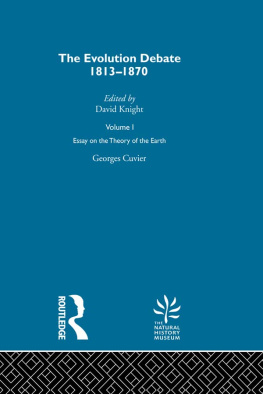
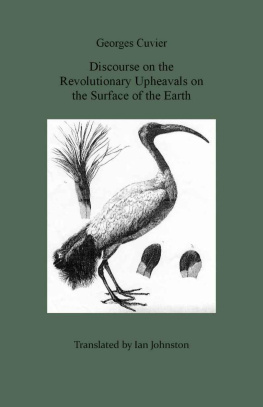
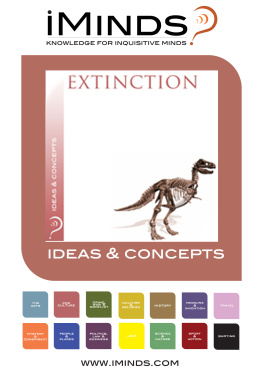
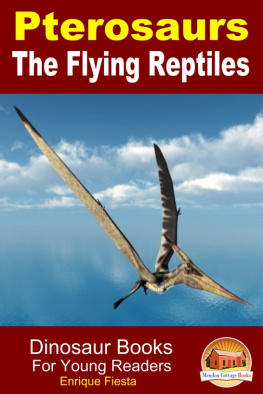

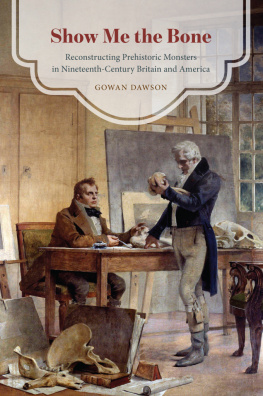
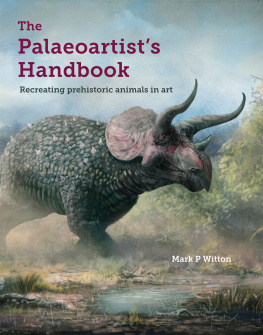
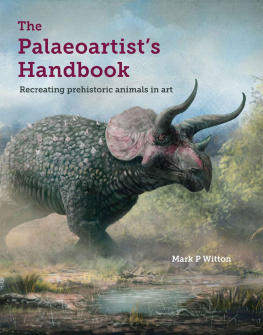
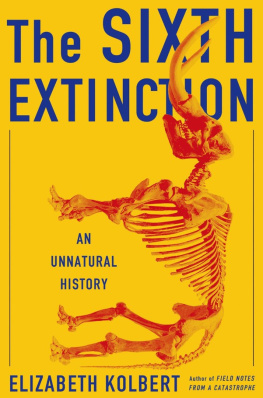
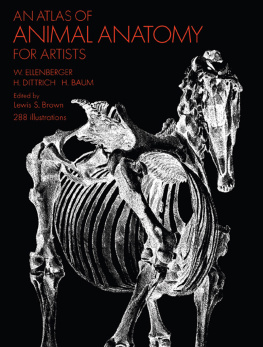
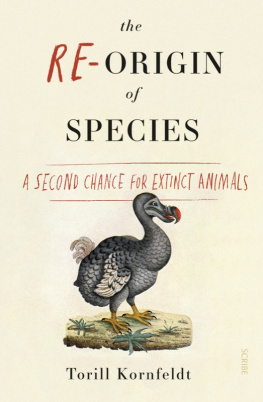
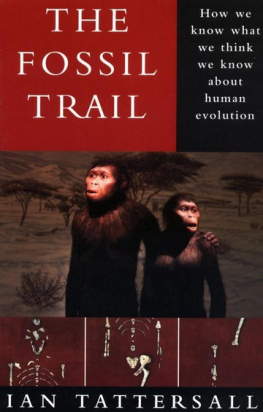
 Georges Cuvier (17691832)
Georges Cuvier (17691832)